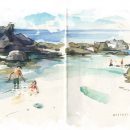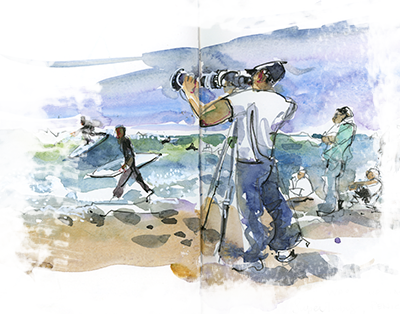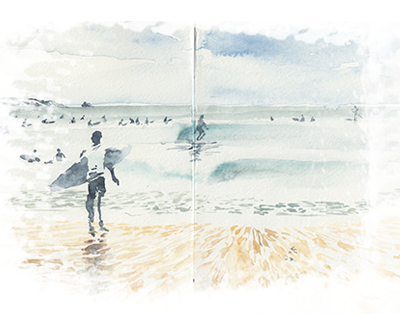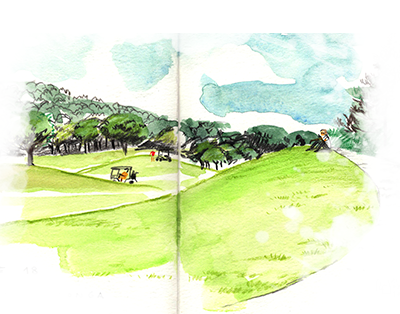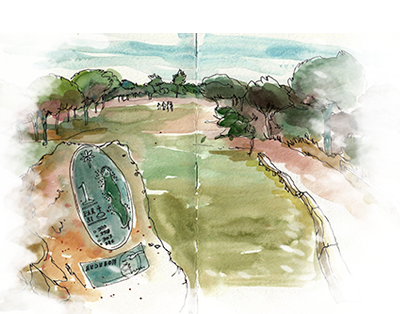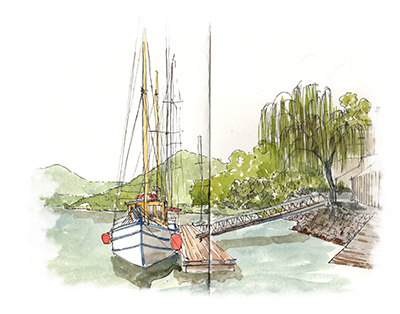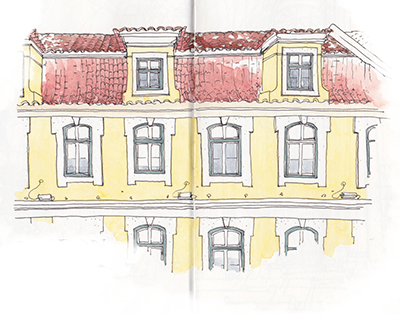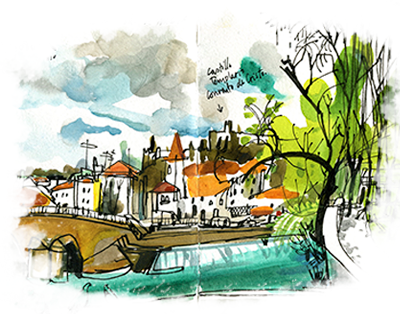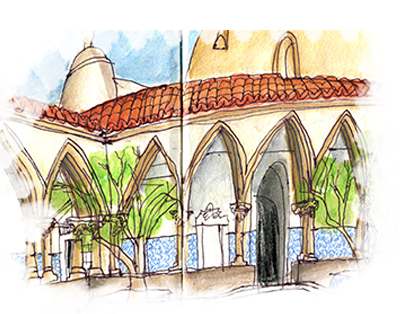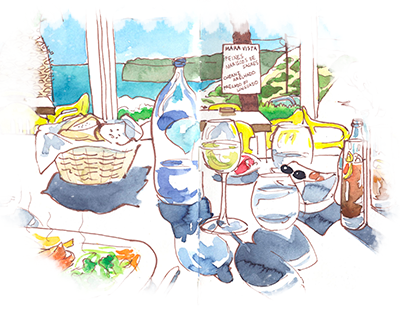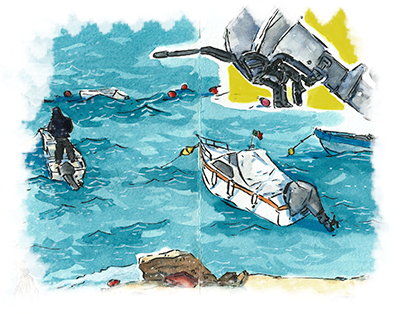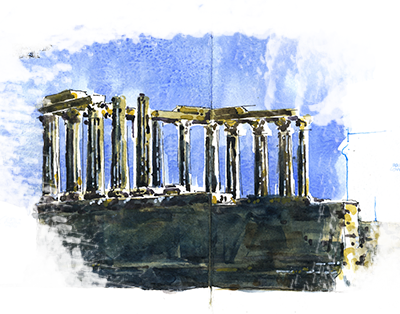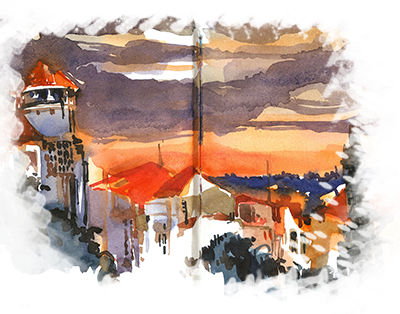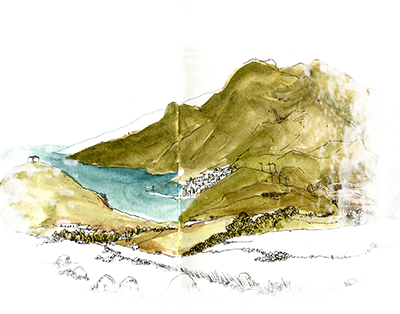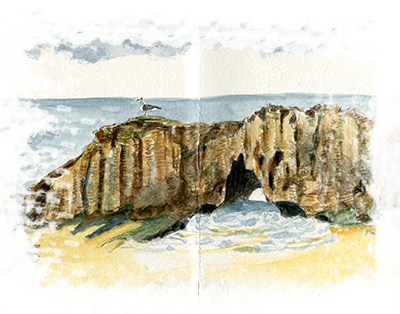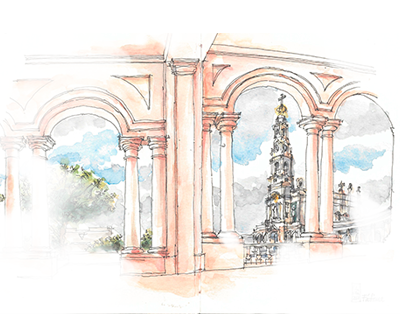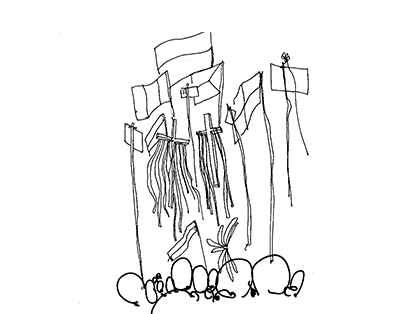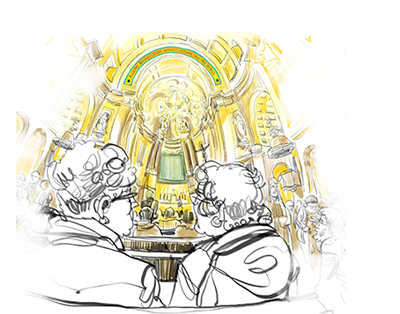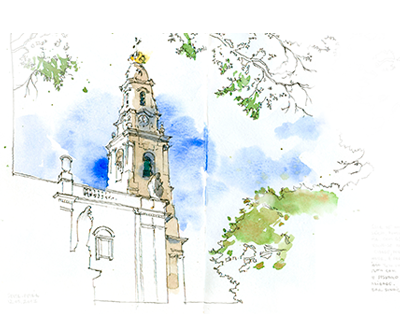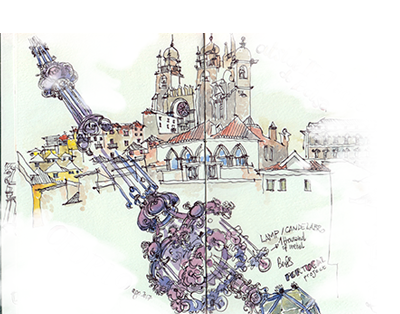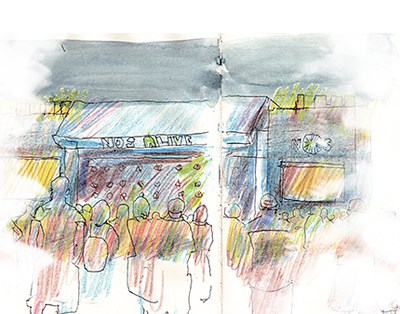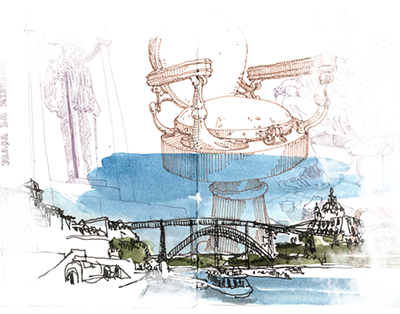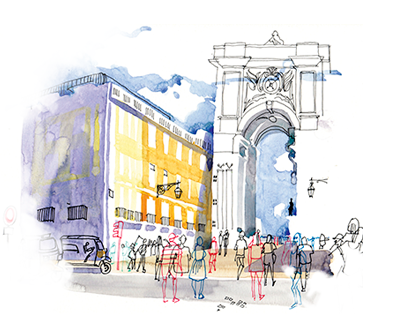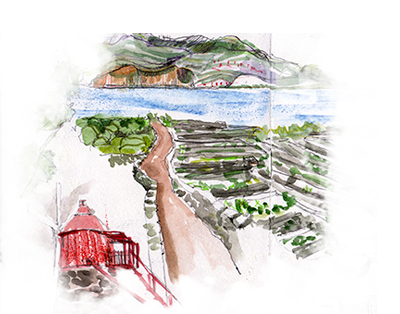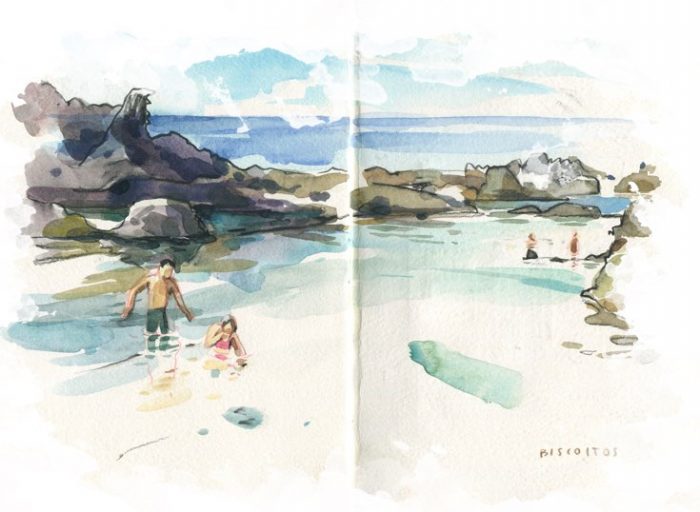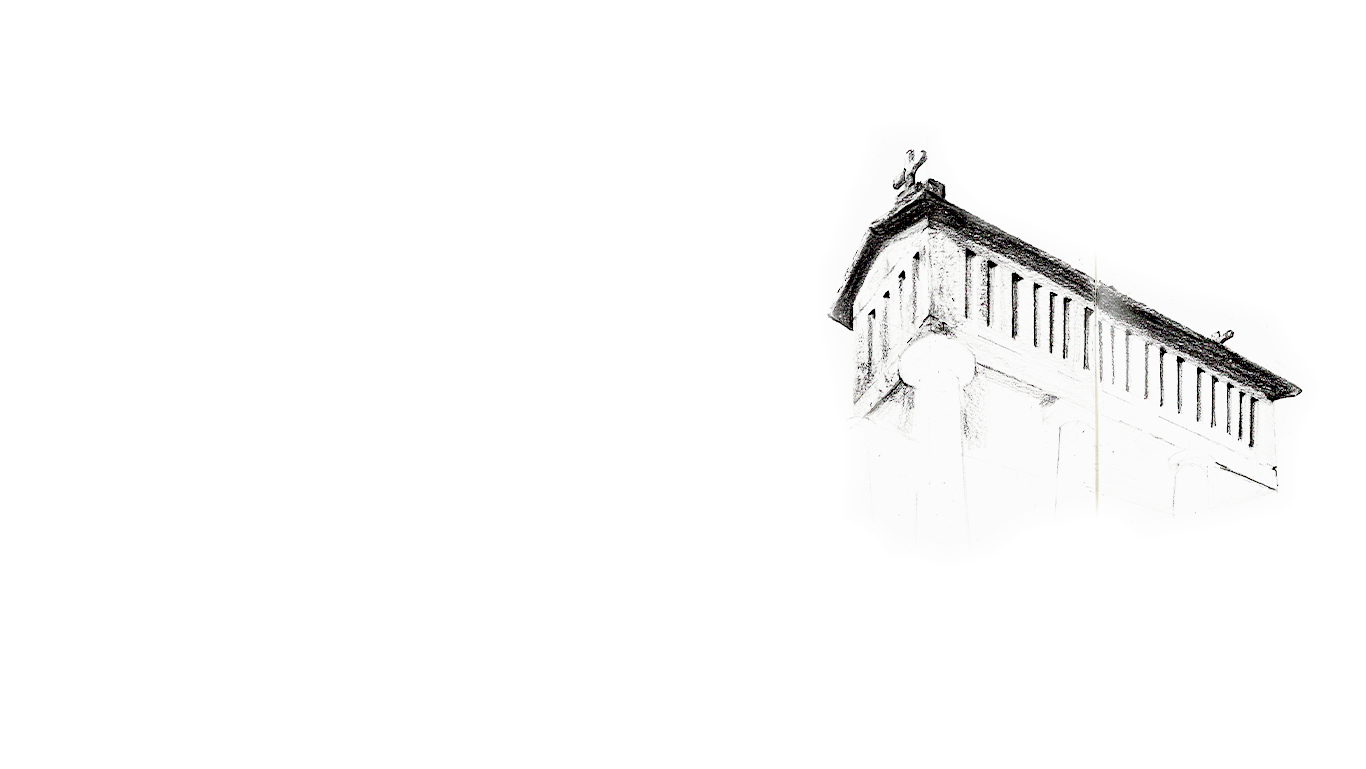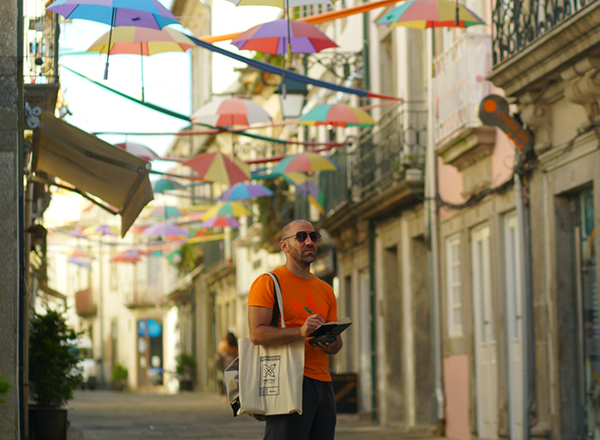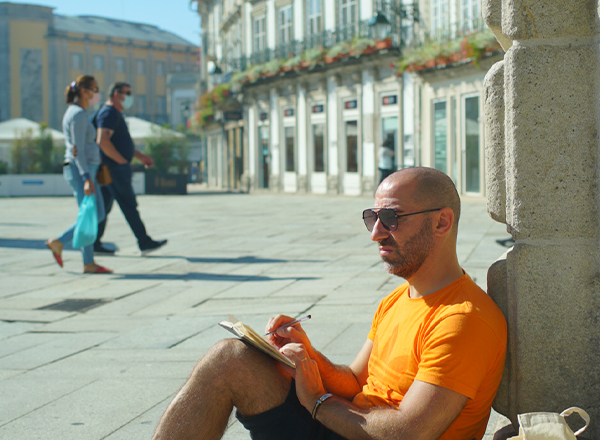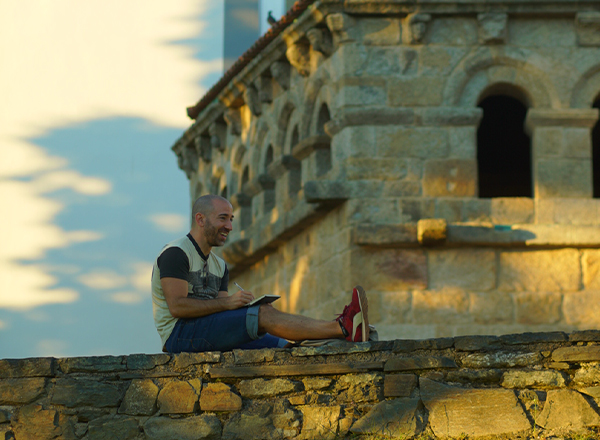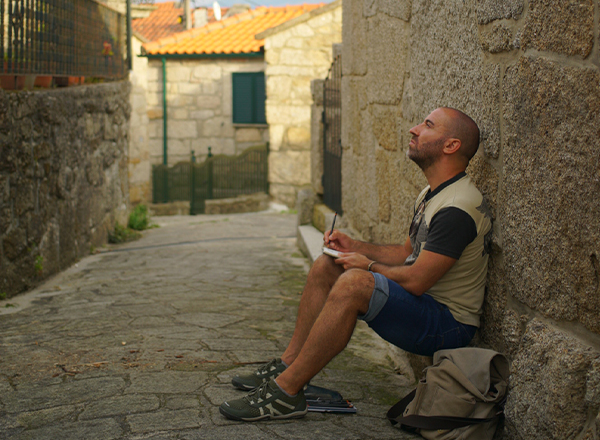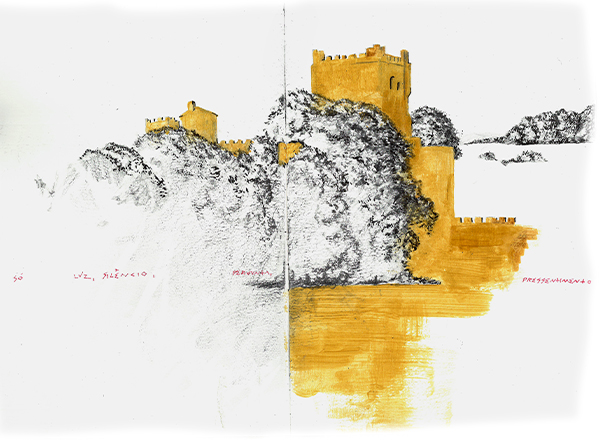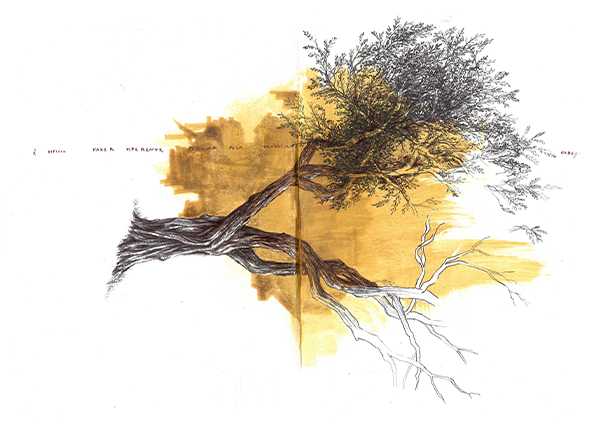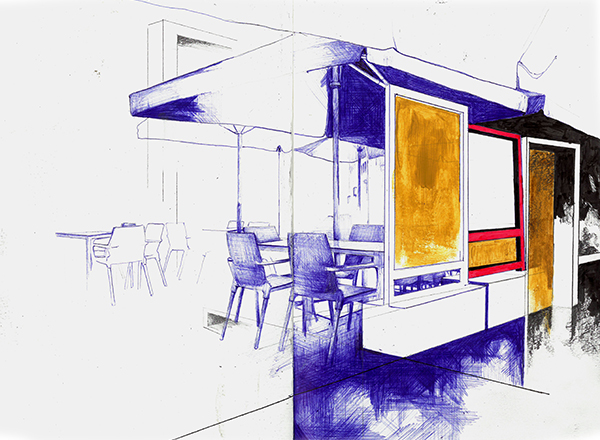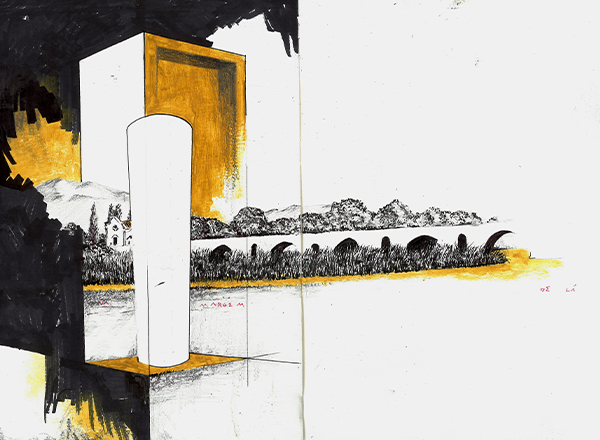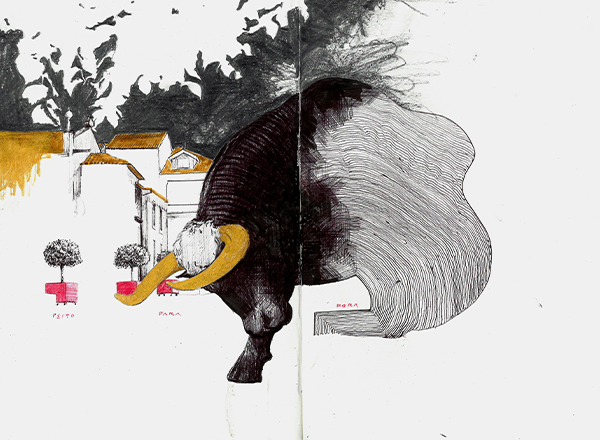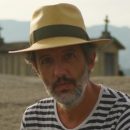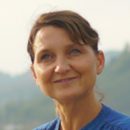Marco António Costa was born in Vila Nova de Gaia in 1978.
He gained a bachelor’s degree in Communication Design and a doctorate in Visual Arts from the University of Porto’s Faculty of Fine Art, and works in the field of visual arts: teaching, research, production, curation, and critique.
Since 2000 he has exhibited at more than 120 collective events linked to visual arts, design, and multimedia, including three individual painting and drawing exhibitions. Since 2009 he has kept a blog devoted to his graphic diaries (www.sketchbooktherapy.wordpress.com)
Sketch Tour Reload Portugal has enabled Marco António to better explore the region where he was born.
What surprised you on this trip?
As I am from the north, this trip wasn't a surprise in the geographic sense. I think the biggest surprise was having the possibility to share the experience in real time, so to speak, which is not usual for the way I travel. Having travel companions, people who make us think, question things, and make us more sensitive in our perception of the journey, gives you a feeling of ongoing growing involvement. Stopping and sharing moments from this journey, thus creating moments of intimacy between people, heightens the experience and makes it unique.
Tell us about something you saw that you had never seen before.
I never had the leisure to enjoy what I call “theatre box time”. Being there to see and be seen. Even though I can see Braganza castle every week I'm in the city, and from almost any part of the city, it was when I opened the door onto the balcony at my room in Pousada de S. Bartolomeu that I found that theatre box and the chance to become aware of that lack of time to look, to really look. Sitting in that chair on a hotel balcony looking at the castle allowed me to do more than just see, I was able to own that image, because I was there, myself, available for the castle. To really materialize a landmark. I saw what I had never seen before because, for the first time, I drew it.
If you had to tell a child about your journey, what would you say?
I would transform the experience into an adventure, discovering mysteries involving artists searching for texts and drawings hidden in historical buildings and even mystical and spiritual places. I would say that there is no journey without adventure and that to discover something you have to stop where others have only passed by.
What were the greatest challenge and the greatest reward from this experience?
When we are invited to create from certain references, the bigger challenge is in that creative ability to conceive something from a sequence of experiences that become entangled in each other from the first moment. Turning an experience into a work of art is a big challenge. Drawing as a form of thought is effective for clarifying ideas and untying those knots of intangibility. The “abs-cenity” in drawing – what remains unseen – underlies the process so the act of drawing is the challenge. The “obs-cenity” in drawing – what is seen – is the drawing as such, and that is the reward.




